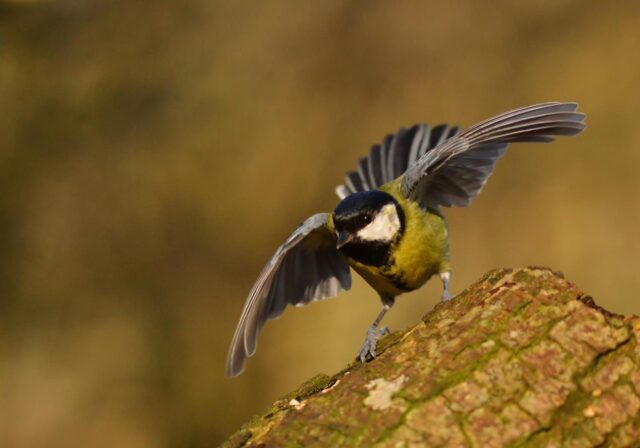Researchers at University College Cork (UCC) studied one specific kind of self-control and their results today (Monday 25th October) reveal intriguing insights into the behaviour of our feathered friends.
The results, published in the Journal of Animal Ecology, show that two traits of great interest to human psychologists, personality and self-control, simultaneously influence flexibility in birds, the first time this has been demonstrated in any non-human species.
To increase their chances of survival in the wild, animals must respond to changes in their environment. These changes might be in the quality of their food, or in the level of danger from predators. Individual birds vary in their responsiveness to changes, and the UCC researchers in this study wanted to understand why.
To answer this question, the team used similar principles to the 1972 Stanford marshmallow experiment on delayed gratification. In the marshmallow test, children were given the choice between a single marshmallow now or several marshmallows a little later. Most showed poor self-control, couldn’t wait, and took the single marshmallow.
The UCC researchers trained Great tits to find hidden food from the side of a plastic tube they could not see through. When the tube was switched with a transparent one, many of them could not resist pecking directly at the front of the tube where the food could only be seen, forgetting that the food could easily be taken from the side. Other birds showed very good self-control and instead quickly took the food from the side.
These same birds with greater self-control were also the same ones who, in another later experiment, were more likely to break their normal feeding habit when a better food option became available.
The study also found that personality of the birds affected their flexibility: bold great tits were more flexible in their food choices than shy ones. This result was especially true when in the presence of a taxidermy hawk. Bold birds are just that – they take more risks in the presence of predators and they are more likely to switch to a less familiar food that could put them under greater risk due to the unfamiliarity.
The results show that two traits of great interest to human psychologists, personality and self-control, simultaneously influence flexibility in birds, the first time this has been demonstrated in any non-human species.
The paper, published in the Journal of Animal Ecology, is entitled: “Inhibitory control, exploration behaviour and manipulated ecological context are associated with foraging flexibility in the great tit”.
“We know that individual birds vary in how much self-control they show, but we didn’t know how self-control was related to how great tits are behaving in the wild” said researcher Jenny Coomes, who conducted the experiment.
“Animals need to be flexible to respond to changes in the environment around them, including changes in the quality and types of food they find. Our study helps us understand why some birds are more flexible than others.”
“We often think of birds as being relatively simple creatures but studies such as ours are a reminder that their behaviour is caused by the same factors as our own.”, said Professor John Quinn, who led the research.
“The great tit has a very small brain. But it is also an extremely complex one and capable of many sophisticated cognitive capacities. They also need to be because in the wild they are constantly faced with life and death decisions mixed with an element of uncertainty”.
“This experiment was done with birds temporarily held in an aviary. What these patterns mean for life in the wild, or indeed whether they affect the survival of species in the face of global change, remains to be discovered”.




